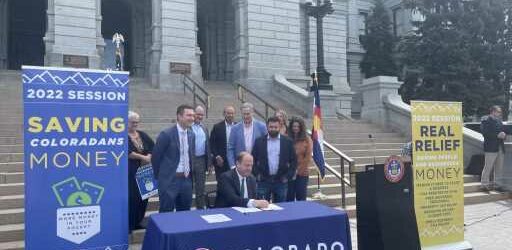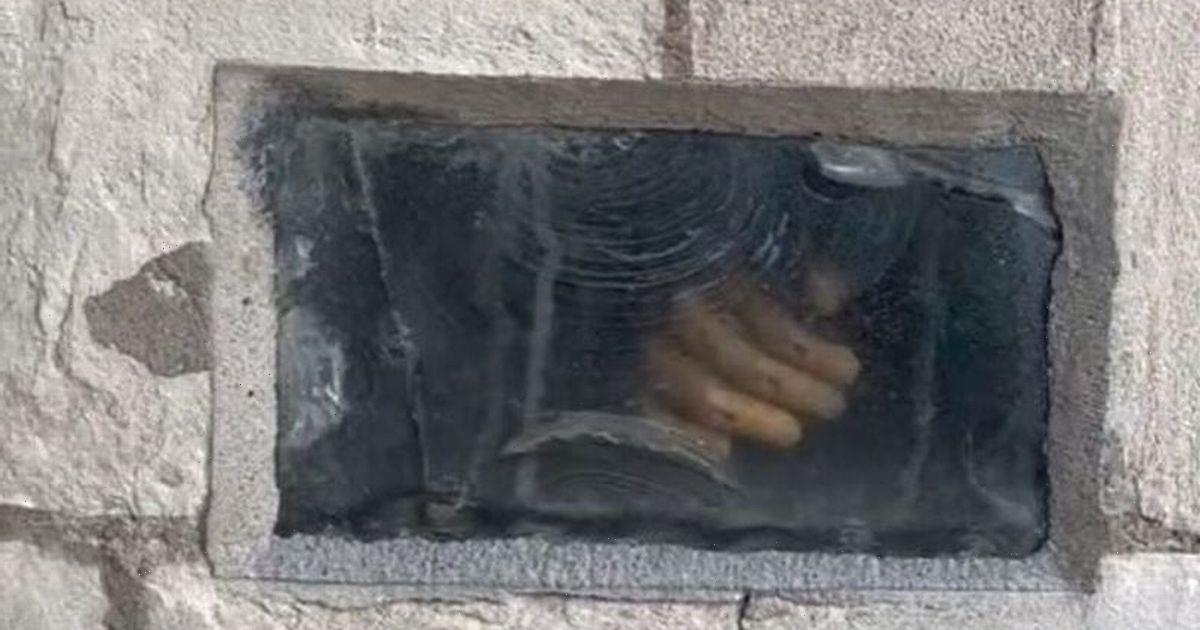Gov. Jared Polis began his post-General Assembly bill-signing tour Monday by inking into law an effort to blunt the bite of rising property taxes and another that delayed a gasoline fee initially set to go into effect this year.
The first, SB22-238, amounts to a $700 million cut to property taxes in 2023 and 2024 as policy makers try to dull how much owners owe due to skyrocketing property values. It cuts how much of a property’s actual value is used for tax purposes.
“It’ll help make sure that no one is priced out of the home that they live in, just because the value of that home has gone up,” Polis, a Democrat up for re-election this fall, said. “This is the first reduction in nonresidential assessment rate for 40 years. That means for 40 years, the assessment rate has gone up and up for small businesses across our state and now it is going down in a big way.”
Due to the recently repealed Gallagher Amendment, Colorado historically relied on commercial property taxes for most of that funding base. This new law — which fended off threats of competing ballot measures to shape property tax policy — gives state officials breathing room to find a longer-term solution.
“We’ve responded to this moment with a very thoughtful package,” state Sen. Chris Hansen, a Denver Democrat, said at the Monday bill signing. “Keep in mind what this bill also does though is make sure that we’re not relying on unresponsive formulas in our Constitution to handle this issue, because we know the downside of that.”
Polis previously said he expects the law to save the owner of a $500,000 home about $274 a year and the owner of a $500,000 commercial property about $1,200. It does that by dropping the assessment rate from 29% to 27.9% for commercial properties, and from 6.95% to 6.765% for residential properties.
To pay for the cuts, the state is setting aside about $400 million to go to counties so they don’t cut the budgets of things like schools or fire services. On the latter, Hansen noted “the high probability of a big fire season” — an incongruous note in an event themed around tax and fee relief. The $400 million comes from a mix of one-time money, refunds due taxpayers through the Taxpayer Bill of Rights. Another $300 million is expected in lost revenue.
The $200 million in tax refunds drew criticism from some Republicans who accused the Democrats of padding the deal with money already owed to taxpayers. Even at the bill signing, Hansen and Polis framed it as $700 million in tax relief, while fellow sponsor state Rep. Patrick Neville, a Castle Rock Republican, called it a half-billion-dollar cut.
Regardless, the bill ended up sailing through the legislature with unanimous votes in each chamber. Neville, a staunch conservative, said the opportunity to sign on to a bill that cut taxes by that much wasn’t much of a choice at all.
“It’s probably no surprise to anyone that I hate taxes, but the worst kinds of taxes are property taxes, where you are literally paying the government rent on something that you bought that they didn’t help you pay for,” Neville said. “And so this is the worst kind of taxes and anything that we can do to provide relief on these taxes, I’m all on board for.”
Polis also signed HB22-1351, which delays a 2-cent per gallon fee on gasoline from being implemented until April 2023. The fee was part of a 2021 bill that was projected to raise more than $1.6 billion by 2032. It was supposed to go into effect this July, but Polis and lawmakers pulled back on that plan in January as inflation rose.
While arguing Colorado actually has lower per-gallon gas prices than the country’s average, Polis still encouraged Coloradans to shop around and specifically to avoid those stations selling it for $4.40 a gallon.
Source: Read Full Article


